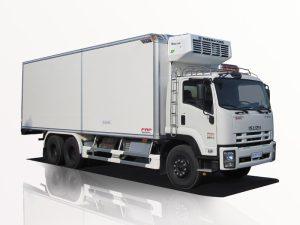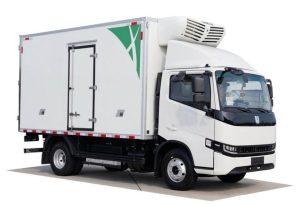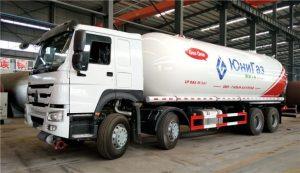Monday to Saturday - 8:00 -17:30
Understanding Fuel Truck Capacity: A Comprehensive Guide
Introduction
Fuel trucks are an essential part of the transportation and logistics industry. They are designed to safely and efficiently transport various types of fuels, including gasoline, diesel, aviation fuel, and other petroleum products. One of the most critical specifications of a fuel truck is its capacity. Understanding fuel truck capacity is vital for logistics managers, fleet operators, and even small business owners who depend on fuel trucks for their operations. In this article, we will dive deep into the concept of fuel truck capacity, explore its various aspects, and provide practical tips and examples for choosing the right fuel truck for your needs.
1. What is Fuel Truck Capacity?
Fuel truck capacity refers to the total volume of fuel that a fuel truck can carry. This capacity is usually measured in gallons or liters and can vary significantly depending on the design and purpose of the truck. Fuel truck capacity is important because it impacts operational efficiency, cost-effectiveness, and regulatory compliance.
1.1 Importance of Fuel Truck Capacity
The capacity of a fuel truck plays a crucial role in various aspects of its operation, including:
- Route Planning: Knowing the capacity helps drivers plan their routes and determine the number of trips needed to deliver fuel.
- Cost Management: Larger capacity trucks can reduce transportation costs by minimizing the number of trips required.
- Regulatory Compliance: Different capacities may be subject to distinct regulations and requirements for transportation.
2. Types of Fuel Trucks
Fuel trucks come in various sizes and types, each designed for specific applications. Understanding the different types can help businesses choose the right vehicle for their needs.
2.1 Box Trucks
Box trucks, often referred to as straight trucks, typically have a smaller capacity of about 1,000 to 3,000 gallons. They are ideal for deliveries to gas stations, small businesses, and rural areas due to their maneuverability.
2.2 Tanker Trucks
Tanker trucks are designed for transporting larger quantities of fuel and usually have a capacity ranging from 5,000 to 10,000 gallons. These trucks are used for bulk fuel deliveries to larger facilities and distribution centers.
2.3 Bulk Fuel Trucks
Bulk fuel trucks are the largest type, with capacities of up to 12,000 gallons or more. They are used primarily for transporting fuel across long distances and for large-scale distribution.
3. Factors Affecting Fuel Truck Capacity
Several factors can affect the actual capacity of a fuel truck.
3.1 Truck Size and Design
The overall size and design of the truck significantly influence its fuel-carrying capacity. Larger trucks or those with specialized tanks can hold more fuel.
3.2 Weight Restrictions
Regulations regarding weight limits affect how much fuel can be loaded onto a truck. Trucks must comply with federal and state weight limits to ensure safe transportation.
3.3 Type of Fuel
Different types of fuel have different densities, which can influence capacity. For instance, diesel fuel is denser than gasoline, which means that the same volume of each fuel type may weigh differently.
3.4 Accessibility
The design and accessibility of the fuel loading and unloading system can also impact how much fuel is loaded onto the truck.
4. Choosing the Right Fuel Truck Capacity
Choosing the right fuel truck capacity involves understanding your operational needs and requirements.
4.1 Assessing Fuel Demand
Calculate the average fuel consumption rates for your business. Understanding how much fuel you need regularly helps in selecting the appropriate truck capacity.
4.2 Frequency of Deliveries
Businesses that require frequent deliveries might benefit from trucks with higher capacities. Conversely, if deliveries are infrequent, a smaller truck may suffice.
4.3 Storage Capacity
Consider the storage capacity at your fuel receiving station or depot. A fuel truck cannot deliver fuel that exceeds your storage capabilities.
5. Regulatory Considerations
Fuel transportation is subject to various regulations, and compliance is crucial for operational integrity.
5.1 DOT Regulations
The U.S. Department of Transportation (DOT) has established guidelines regarding the transportation of hazardous materials, including fuel. Familiarizing yourself with these can prevent legal issues.
5.2 Insurance Requirements
Insurance for fuel transport vehicles may be influenced by the truck’s capacity. Higher capacity trucks may require more extensive insurance coverage.
6. Safety Considerations
Safety is paramount in fuel transport operations.
6.1 Spill Prevention
Understanding fuel truck capacity aids in spill prevention. Overloading a truck can lead to spills, endangering the environment and incurring legal penalties.
6.2 Driver Training
Ensure that drivers are trained on the specific characteristics and handling of the fuel truck, including its capacity and loading/unloading procedures.
7. Maintenance of Fuel Trucks
Regular maintenance of fuel trucks is essential for safety and operational efficiency.
7.1 Routine Inspections
Conduct regular inspections of the truck’s fuel tank and related systems to ensure they meet safety standards.
7.2 Fuel System Cleaning
Maintaining clean fuel systems aids in the longevity and efficiency of fuel trucks. Schedule cleaning based on usage patterns and manufacturer recommendations.
8. Environmental Considerations
Fuel transportation has environmental implications that must be addressed.
8.1 Emission Standards
Ensure that your fuel truck meets emissions standards to minimize its environmental impact. Some trucks might qualify for more eco-friendly options.
8.2 Fuel Types
Consider using biodiesel or alternative fuels to help reduce the carbon footprint of your fuel transportation operations.
9. Practical Examples of Fuel Truck Capacity Usage
Understanding how fuel truck capacity plays out in real-world scenarios can provide practical insights.
9.1 Case Study: Small Business Fuel Delivery
A local retail operation needs diesel fuel for generators and machinery. After assessing their fuel consumption and delivery frequency, they opted for a 3,000-gallon fuel truck, balancing cost-effectiveness with storage capabilities.
9.2 Case Study: Bulk Fuel Distribution
A logistics company involved in long-distance transportation chose a 10,000-gallon tanker truck. This choice minimized transportation costs and allowed them to better serve their clients throughout the region.
FAQ Section
1. What is the average capacity of a fuel truck?
The average capacity of a fuel truck ranges from 1,000 gallons for smaller box trucks to 12,000 gallons or more for bulk fuel trucks.
2. How do I know what capacity I need?
Assess your fuel demand, delivery frequency, and storage capacity at your depot to determine the appropriate truck capacity for your business.
3. Are there specific regulations for transporting fuel?
Yes, there are various regulations from organizations such as the U.S. Department of Transportation regarding fuel transportation, which include weight limits, safety measures, and spill prevention protocols.
4. How can I ensure the safety of fuel transportation?
Regularly inspect the truck, conduct driver training, ensure compliance with regulations, and avoid overloading the vehicle to maintain safety during fuel transportation.
5. What are the environmental considerations when using fuel trucks?
Consider emissions standards, fuel types, and the potential for spills. Opting for more eco-friendly fuels can also contribute to minimizing environmental impact.
6. Can I modify my fuel truck for increased capacity?
Modifying a fuel truck can be complex due to safety and regulatory concerns. Consult with manufacturers or certified specialists to determine what changes are feasible.









